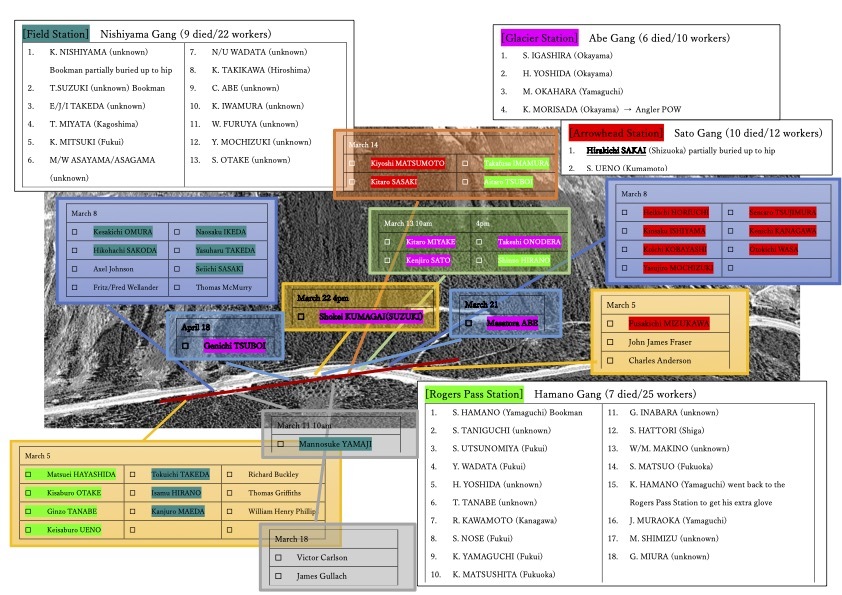On March 4, 1910, the Pacific Northwest was gripped by the ninth day of a fierce storm cycle. At Rogers Pass summit, over two meters of snow had piled up, with half a meter falling that day alone. Temperatures, initially plummeting to minus 20 degrees Celsius, had climbed above freezing.
Late that afternoon, an avalanche roared down Mount Cheops, engulfing the Canadian Pacific Railway’s mainline at the summit. This blockage stranded a Vancouver-bound passenger train at Rogers Pass Station, just east of the slide. A work train from Revelstoke arrived at the western edge of the avalanche, where dozens of men, supported by a rotary snow plow, labored through the night to clear the tracks. The plow carved a deep trench through the heavy snow, while the men shoveled within it to free the line.
Near midnight, disaster struck. A second avalanche thundered down from Mount Avalanche on the opposite side of the valley, burying the trench and the men inside. When the snow and wind settled, few survived. The tragedy claimed 58 lives.
By early March 5, news of the catastrophe reached Revelstoke, where alarm bells rallied the community. Within hours, a train carrying railway workers and volunteers of all ages sped toward the site. Over the following days, hundreds joined the somber effort to recover the victims’ bodies.
The deceased reflected Canada’s diversity: Japanese, English, Irish, Scottish, Swedish, Danish, and Polish, ranging from long-established Canadians to recent immigrants. They were foremen, bridgemen, engine crew, and laborers, aged 19 to 48, each leaving behind families—wives, children, parents, siblings—in Revelstoke, across Canada, or in Europe and Japan.
As the disaster’s scale became clear, grief enveloped Revelstoke. On March 20, hundreds attended a memorial service, singing hymns, praying, and comforting one another. Families mourned deeply; James Moffatt’s mother, writing from Belfast, Ireland, to CPR Superintendent Kilpatrick, expressed her heartbreak: “My son is a great loss to me…my heart is broke about my dear son, cut down in the prime of life, far from where I can visit his grave.”
Honored in death as in life, the victims were laid to rest across Canada and beyond. Funerals took place in multiple communities, including Vancouver, where Bishop Sasaki of the Buddhist Church performed sutras for the 32 Japanese men buried at Mountain View Cemetery. Fourteen men were interred in Revelstoke’s cemetery, two in Golden, and others across Canada, with one laid to rest in Wales.
